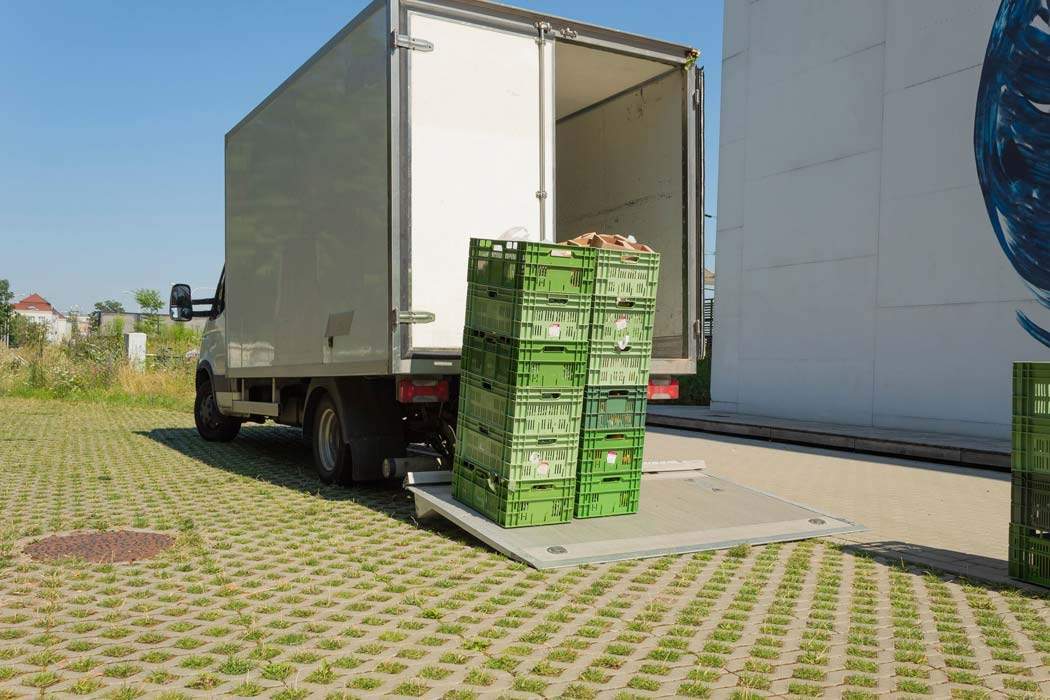
Article contributed by Robin Kix, Lance Surety
4 Strategies for Brokers to Ensure Food Shipments Keep Moving
The global supply chain is still struggling from the disruptions first brought by the pandemic combined with other system-wide problems.
Capacity continues to be a major issue with a shortage of drivers and trucks available to transport shipments. While a freight broker can’t address the macroeconomic problems of capacity demands and the availability of equipment, you can still play an important role in helping with driver retention. To keep the food shipments you manage flowing across the U.S. supply chain, you should take steps to make the daily life of drivers a little easier.
While the role of a freight broker is to liaise between carriers and shippers to manage how goods are transported, you should also focus on providing support to the drivers who transport your food products. Building strong relationships with the carriers with which you contract and the drivers they employ can also help to protect your freight broker bond from potential claims. Here are four things you can do to facilitate the transportation of your shipments while making the job of the drivers on which you rely a little easier.
Confirm All Details in Advance
When a shipper contracts with you to move their food products, you’ll want to ensure the delivery arrives on time. Making sure that freight moves according to the plan requires careful attention to the details. Carriers count on freight brokers to provide them with the information needed to complete successful deliveries. If you don’t provide enough information about delivery times or warehouse facilities, it can cause some major headaches and delivery delays.
If you can, you should take steps to verify all of the details you have been provided by the shipper instead of assuming they are accurate and have already been confirmed. Contact the consignee and the shipper to verify each detail. Human errors sometimes happen that can lead to problems at the point of delivery. Double-check the delivery times you have been provided. Talk to the carrier and ask about their needs so that you can ensure they are addressed. Make sure you familiarize yourself with the various delivery locations so that you can anticipate problems and communicate them. Taking time to confirm all of the details of each shipment can help to ensure the deliveries are made on time and prevent potential headaches and losses.
Openly Communicate
Keeping communication lines open and being direct about what’s happening at all times is important. Don’t be afraid to communicate about problems. If you aren’t direct, it can be frustrating for carriers and their drivers. For example, long periods of loading and unloading can be frustrating for drivers. If you know that a warehouse facility will take a long time either while loading or unloading, communicating that in advance can help to decrease the unpleasantness of the experience.
Let the carriers know if a facility has restrictions on what drivers are allowed to do during the loading process. When a driver arrives to pick up a shipment or drop off a delivery, facing an unexpected, hours-long wait during the loading or unloading process can be maddening for drivers. As a broker, you should communicate these types of details in advance so that potential problems can be addressed and resolved.
 Educate Shippers About Setting up Freight Shipments
Educate Shippers About Setting up Freight Shipments
As a freight broker, you are uniquely positioned to hear from both shippers and carriers about their experiences in the freight business. You can use your role to ensure both the carriers and shippers are educated about food shipments. With carriers, make sure to educate them about the amenities, hours, and practices of different delivery facilities. You should also make sure to educate shippers with which you contract about choosing sensible transit times with drivers in mind, avoiding excessive stops, and taking steps to ensure the food products continue moving.
Provide shippers with information about the preferences of carriers to help both the shippers with which you do business as well as the drivers who will transport the loads. Let shippers know when facilities are problematic so that changes can be made. Shippers are not always in tune with what carriers and their drivers need, so you can use the opportunity as a freight broker to provide information and positively impact the drivers who will transport the goods.
Give Respect Where and When It’s Due
Remember that the shipments you manage wouldn’t reach their destinations on time for successful deliveries without the work of the truck drivers who transport them. As the pandemic and the resulting supply chain issues have demonstrated, truck drivers are essential to the critical food transportation infrastructure. When you conduct your business, you should ensure you respect and support the truck drivers. Over time, minor inconveniences can accumulate and build for drivers on the road.
If you can take steps to improve the drivers’ quality of life, you should try to do so. Be an advocate for the drivers who carry the shipments. Drivers have more to offer than simply their trucks but can instead alert you in advance to potential issues. Be courteous and patient with drivers at all times, and try to take steps to improve their experience in working with you in the future. When you do, you demonstrate to the drivers that you respect them and prioritize the efforts of the transportation industry’s frontline workers.
Taking simple steps to ensure the experiences of the drivers who transport your goods can help to keep your food shipments flowing through the supply chain. Making sure to confirm all details you are provided by shippers, keeping open lines of communication with both the carriers and shippers, and educating carriers and shippers about the freight shipment process can help to prevent bottlenecks. When you also show respect for the workers who will transport the food freight, it can help to protect both your bottom line and that of the carrier by aiding in driver retention. By building good relationships with all of the parties involved, you can enjoy a strong reputation that could result in additional business.
Robin Kix is currently the Renewal Department Manager. Since joining Lance Surety in 2014, she has helped thousands of businesses throughout the nation remain compliant at the federal, state and local level. She has significant experience supporting commercial bond lines, particularly in the automobile, transportation and construction industries.























